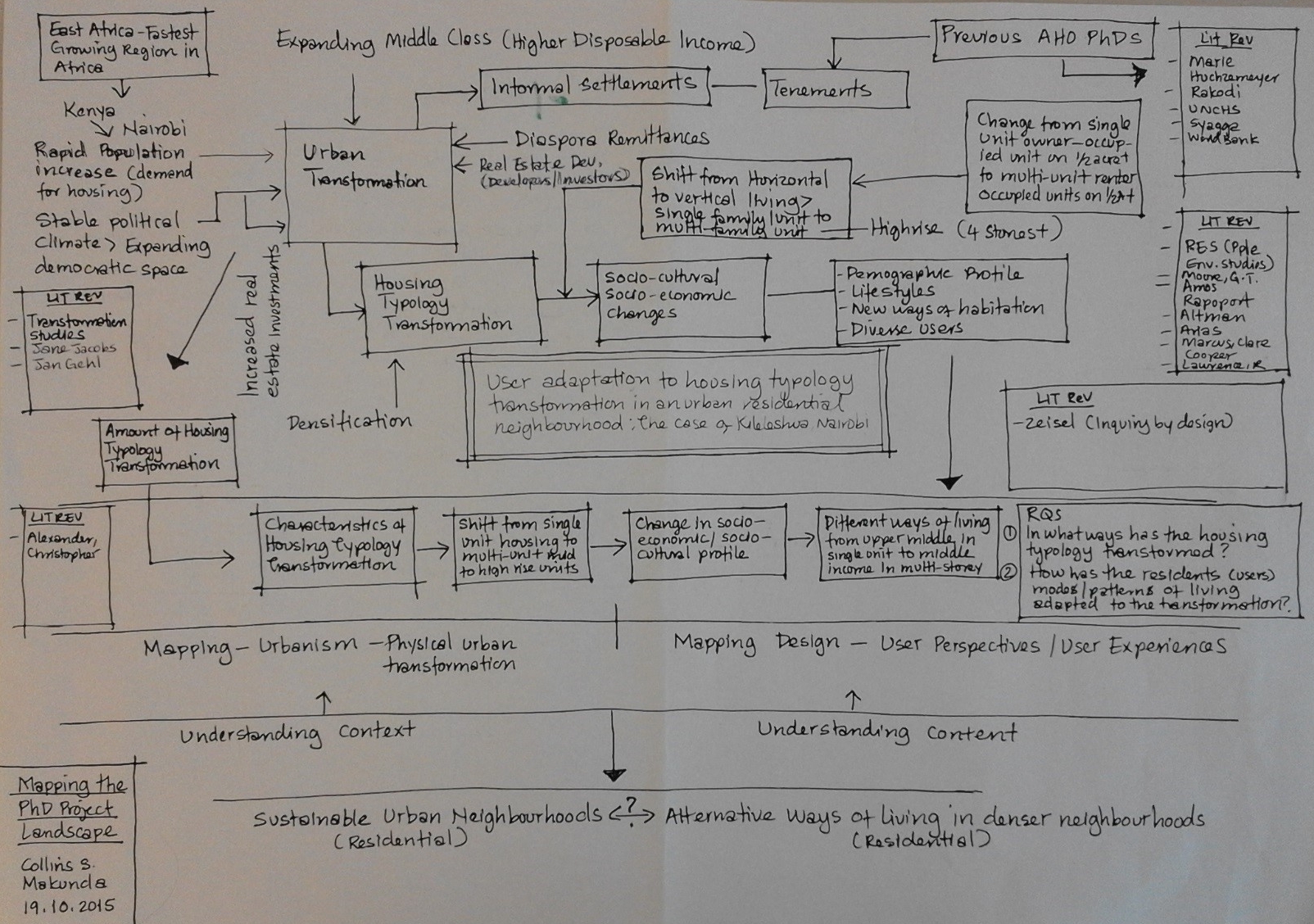Collins Makunda Urban Habitat Transformation: Process, Output, Critique – The Case of Kileleshwa, Nairobi, Kenya
The thesis project is an investigation of the transformation of an urban residential habitat located in Nairobi, Kenya. The study of transformation of housing, since the beginning of the 21st Century, in Kileleshwa, a residential neighbourhood in Nairobi, will be the principal lens by which the phenomenon of urban residential transformation will be investigated. The research will focus on an analysis of the process and outcome of the transformation within the urban context and through critique, seek to establish critical perspectives on the transformation in relation to housing economy, architectural design quality and urban sustainability as a means of highlighting salient issues made manifest by the phenomenon. Though the research focuses on housing, its context is multi-disciplinary in exploring issues that relate to urbanism, architecture and design. The research is aimed at revealing the urban process framework that makes possible rapid transformation of an urban residential neighbourhood. It seeks to explore the implications of the specific structuring of the urban process for the actors involved and the long term viability of the scheme for the manifested urban outcomes. Towards this aim, the research seeks to address the following key question:
What are the processes, characteristics and outcomes of the rapid transformation occurring in low-rise urban residential areas in Nairobi?
In addressing the research question, a methodology that is primarily qualitative in approach will be used. The residential neighbourhood in Nairobi will be the locus for a case study in which quantitative documentary evidence of the physical outcomes of the transformation will be collected with the aid of maps, drawings, photographs and published reports. Interviews will be the key qualitative method by which the roles of the actors involved in the transformation process will be investigated. The interviews will target the participants on both the supply and demand side of the housing production process.
The data collected will form the basis for a succinct understanding of the process and outputs of rapid transformation in a low-rise urban residential habitat as well as allow for a critical reading of its manifestation in relation to the neighbourhood’s housing economy, architectural design quality and urban sustainability, consequently making visible the framework of the process of transformation and its attendant ramifications. The thesis format will be a monograph.
Institute of Urbanism and Landscape / Karl Otto Ellefsen (Supervisor)
PhD started in 2015

